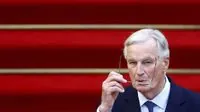Pension Credit Claims Surge After Labour's Winter Fuel Cut Announcement
Applications for pension credit have more than doubled following Labour's decision to cut winter fuel payments. The surge in claims could cost the Treasury an additional £278 million annually, challenging the expected savings.

The UK government faces unexpected financial challenges as pension credit applications have surged following Labour's announcement to restrict winter fuel payments. The Department for Work and Pensions reports that 38,500 individuals applied for pension credit in the five weeks after the Chancellor's declaration, compared to 17,900 in the preceding five weeks.
This significant increase in applications could potentially cost the Treasury an additional £278 million annually, according to Policy in Practice. This amount represents approximately one-fifth of Labour's projected £1.5 billion savings from the winter fuel payment cuts.
On July 29, 2024, the Chancellor announced that individuals over state pension age would no longer automatically receive the annual winter fuel payment. Under the new policy, only retirees with an income below £11,343 will be eligible for these payments through pension credit support. This change marks a significant shift in the UK's approach to pensioner benefits, which have been expanding since the introduction of the winter fuel payment in 1997.
The pension credit, introduced in 2003, provides additional support to low-income pensioners. On average, the benefit is worth £3,900 annually to claimants, increasing to at least £4,100 with the winter fuel payment. Claimants aged over 80 will be eligible for up to £300 in fuel allowance. Beyond the financial boost, pension credit recipients may also qualify for other benefits such as reduced council tax, housing benefit, and free prescriptions.

The Labour Party, which has historically been associated with expanding welfare provisions, now faces internal opposition to this policy shift. In a non-binding vote at the Labour Party conference in Liverpool, delegates opposed the government's winter fuel raid, dealing a symbolic blow to the Prime Minister. This follows a parliamentary vote earlier in September 2024, where 50 Labour MPs defied Sir Keir Starmer by refusing to support the plan to remove the allowance from pensioners.
Official data reveals that the oldest pensioners will be most affected by this cut. Of the 11.6 million winter fuel payments received last year, 5.8 million went to claimants aged 75 and over. This demographic shift reflects the UK's aging population, with over 12 million people aged 65 and over in 2021.
The government defends its position, citing the need to target support to those most in need due to the current state of public finances. A spokesperson stated, "We are committed to supporting pensioners – with millions set to see their state pension rise by £1,700 this Parliament through our commitment to the triple lock."
However, critics argue that this move contradicts Labour's historical stance on welfare and could exacerbate pensioner poverty, which, although decreased since the 1990s, remains a concern. The decision also comes at a time when energy prices in the UK have risen significantly, affecting many households and potentially pushing more into fuel poverty.
As the debate continues, the surge in pension credit applications highlights the complex interplay between policy changes, public response, and fiscal implications. With the UK's social care system for the elderly already under scrutiny, this development adds another layer to the ongoing political discourse on supporting the nation's aging population.
"Given the dire state of the public finances we have inherited, it's right we target support to those who need it most. Over a million pensioners will still receive the winter fuel payment, while many others will also benefit from the £150 warm home discount to help with their energy bills over winter."
This situation underscores the challenges faced by the government in balancing fiscal responsibility with social welfare, particularly in the context of an aging population and rising living costs. As the winter approaches, the impact of these policy changes on the most vulnerable pensioners will be closely watched by both supporters and critics of the new measure.


































